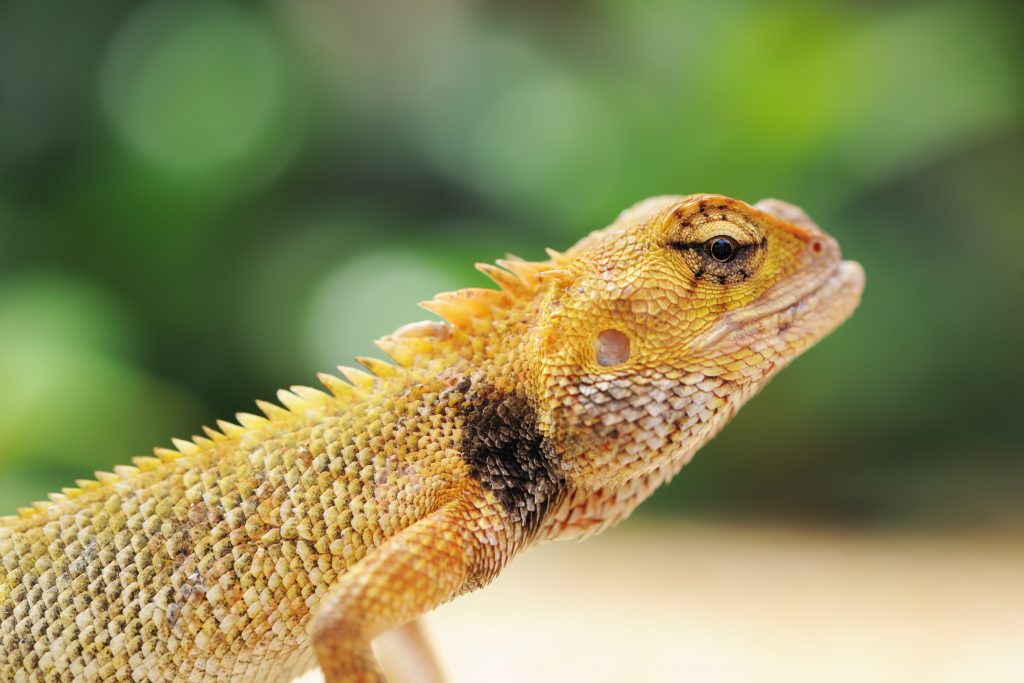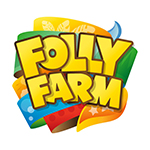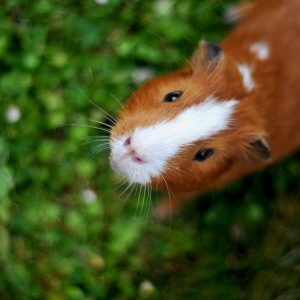Animal Management

Animal Management
BTEC National Foundation Level 3 Diploma in Animal Management
Employment opportunities in the animal care sector are varied and are continually growing and evolving. The RSPCA estimate that there are currently around 20 million pets in the UK (excluding fish!).
Is this course right for me?
If you are interested in working in the animal industry, learning more about the wider concepts relating to the management of animals or progressing to an animal related higher education qualification, then this could be the course for you. The course studies the management and behaviour of animals, including domestic, exotic and wild species. Implementing good animal health and welfare practices are also considered.
This course is based over three of the College campuses, the main College campus, the John Burns Centre for Learning and the Folly Farm Classroom facility (please note that Folly Farm is a No-Smoking site). Transport to and from these venues is via shuttle bus from the main College campus. Learners will spend the whole day on a site.
To undertake this course you will need to be caring, responsible and able to work individually and as part of a group.
You will normally complete a BTEC National Foundation Level 3 Diploma in year one. Successful completion will allow you to progress to the Extended Diploma in year two which is equivalent to three A-levels.


What are the entry requirements?
- Five GCSEs at grade C or above (may include one relevant equivalent) to include English Language/First Language Welsh and Mathematics/Numeracy/Science
- Each application is considered on individual merit
- Entry is subject to attending a course information session or informal interview
Current student - what are the entry requirements?
- Successful completion of relevant Level 2 programme with a merit grade or above in addition to a successful decision from progression board meeting
- GCSE English Language/First Language Welsh at grade C or above
- GCSE Mathematics/Numeracy at grade D or above
What will I learn?
Students will work in our animal house on a regular basis developing practical skills with a wide range of domestic and exotic animals. The course will also involve working with outside organisations for a number of the units studied.
Units to be studied include:
- Animal Biology – Learners study anatomy and physiology at the systemic and cellular level, along with the science of animal classification.
- Animal Welfare & Ethics – Learners study the ethics, regulations, legislation and practices associated with animal welfare in animal-related industries.
- Practical Animal Husbandry – Learners explore the skills needed to manage high standards of health and welfare for a variety of animals by meeting their essential needs.
- Animal Behaviour– Learners explore normal and abnormal behaviours in a range of animals and how these behaviours develop.
- Animal Health & Diseases – Learners study common indicators of animal health, diseases and disorders, as well as treatment and prevention methods in order to detect and protect animals from illness.
- Work Experience in the Animal Sector – Learners study roles available in the animal sector and the progression routes required to attain them, and develop communication and employability skills through study and work experience.
- Animal Nursing – Learners will explore the work of a veterinary practice, including staff roles, responsibilities, procedures, basic nursing skills and the role of governing bodies.
- Health & Safety – This will be a core theme throughout the two years, with strong focus on safe working practices.
- Animal Breeding & Genetics – Learners study the science of genes and genetic factors influencing the management of breeding animals. Learners will develop skills to evaluate and care for breeding stock and offspring.
- Investigative Research Project – Learners study the principles and purposes pf research in the animal sector and develop the skills needed to conduct their own small-scale research project.
- Farm Livestock Husbandry – Learners study the breadth and purposes of farm livestock in the UK, including husbandry techniques required to maintain animal welfare and aid productivity.
- Business Management in the Animal Sector – Learners study the concepts of business management and the breadth of businesses in the animal sector, exploring the roles and responsibilities associated with it.
- Wildlife Ecology and Conservation Management – Learners study the methods and skills needed to investigate habitats, and carry out wildlife habitat improvements and wildlife rehabilitation.
- Human & Animal Interaction – Learners will develop their skills in animal training, and design and implement a training programme to meet a desired goal.
- Exotic Animal Husbandry – Learners study the husbandry needs of exotic animals to ensure their health and welfare. Learners will also study the governing regulations that apply to exotic animals in the UK.
- Zoological Animal Health & Husbandry – Learners study the specialist husbandry skills needed to work with zoo collections, including accommodation, safe handling methods and maintenance of animal health and welfare.
Work experience is a mandatory unit and students will be required to complete eight weeks of placement over the two years of the programme.
In addition to the main programme learners will study the WJEC Extended Project Qualification (EPQ) which can provide additional UCAS points for university entry. It provides opportunities for learners to expand their knowledge, work independently and acquire new skills through a variety of activities which may include: guest speakers, workplace visits and practical experiences.
Will I need to study additional English & Maths skills?
You may need to study an additional skills course depending on:
- the course you are taking at College
- what grades you gained in your GCSE Maths and/or English Language
Click below to find out what skills course you may be taking at College.
If you are studying a Workbased qualification:
- Essential Skills Wales (ESW) in Application of Number and Communications, for Progression pathway programmes within the Built Environment Faculty only
All other courses:
- Upskilling Destination Programme – an hour and half session a week developing essential research skills, critical thinking, and academic writing techniques, supporting literacy, numeracy, digital literacy and employability skills
If you are studying a Workbased qualification:
- Essential Skills Wales (ESW) in Application of Number and Communications, for Progression pathway programmes within the Built Environment Faculty only
All other courses and those who have progressed through the internal progression route:
- A one year GCSE Resit Programme in GCSE Mathematics Intermediate Tier (Welsh or English medium) / GCSE English Language
If you are studying a Workbased qualification:
- Essential Skills Wales (ESW) in Application of Number and Communications, for Progression pathway programmes within the Built Environment Faculty only
All other courses and those who have progressed through the internal progression route:
- A one or two year pre-GCSE upskilling course in required subject/s – The priority of this programme (Foundation Maths for Mathematics pathway) is to build fundamental skill and knowledge, to prepare learners for progression onto the one-year, intermediate tier resit programme.
If you are studying a Workbased qualification:
- Essential Skills Wales (ESW) in Application of Number and Communications, for Progression pathway programmes within the Built Environment Faculty only
All other courses:
- A one year pre-GCSE upskilling course in mathematics – The priority of this programme is to build fundamental skill and knowledge, to prepare learners for progression to the Foundation Maths programme.
If you are studying a Workbased qualification:
- Essential Skills Wales (ESW) in Application of Number and Communications
All other courses:
- Upskilling Destination Programme – an hour and half session a week developing essential research skills, critical thinking, and academic writing techniques, supporting literacy, numeracy, digital literacy and employability skills
- A one year GCSE resit course in required subject/s
- Essential Skills Wales (ESW) in Application of Number and Communications, for Progression pathway programmes within the Built Environment Faculty only
For English:
- A one or two year pre-GCSE upskilling course in required subject/s
- Essential Skills Wales (ESW) in Application of Number and Communications, for Progression pathway programmes within the Built Environment Faculty only
For Maths:
- A one year GCSE resit course in required subject/s
- Essential Skills Wales (ESW) in Application of Number and Communications, for Progression pathway programmes within the Built Environment Faculty only
- A two year pre-GCSE upskilling course in required subject/s
- Essential Skills Wales (ESW) in Application of Number and Communications, for Progression pathway programmes within the Built Environment Faculty only
Learners studying on a Jobs Growth Wales (JGW+) programme will be timetabled into literacy and numeracy sessions. To discuss the opportunity of attending a GCSE resit programme, in addition to their JGW+ timetable, please contact skills@pembrokeshire.ac.uk
Can I do this course in Welsh?
Learners have the option to complete course assessment/assignments or elements of the course through the medium of Welsh or bilingually. Visit our Welsh Language in the College page to find out what else is available to you.
How will I be assessed?
- Continuous assessment during the course
- Practical assessment during the course
- Portfolio of evidence
- Workplace evidence
- Written examination
- Completion of a final major project
What can I do next?
This course can lead to numerous career opportunities including: Veterinarian, Veterinary Nurse, Conservation and Ecology careers, Dog Trainer, Canine Hydrotherapist, Pet Groomer, Animal Behaviourist, Dog Handler, Countryside Ranger, Animal Welfare Officer, Animal Care / Rescue Centre Worker, Pet Sitter, Horse Riding Instructor, Pet Shop Assistant, RSPCA Inspector, Zookeeper, Veterinary Receptionist.
If you are thinking about studying at degree level following this course please visit the university websites or UCAS (University Central Admissions Service) www.ucas.com to check any entry requirements.
Do I need to bring/buy any equipment?
- Stationery - you will be told about any specific items before you start the course
- Textbooks - you will be told about any specific items before you start the course, most textbooks are available to loan from the college library or online libraries
- Practical/comfortable clothing for parts of the course
- It is recommended that your Tetanus vaccination and any other appropriate vaccinations are up to date before commencing work with animals or in the countryside
- You may be eligible for funding. Find out more on our student finance page
Any costs above are approximate and may change.
Are there any additional costs?
- No tuition fee
- We are waiving the Administration Fee for the academic year 2025/26
- You will need to pay a £35 animal workshop fee each year before you start the course
- You can rent a locker for £10 per year this will be refunded if the locker remains undamaged and keys are returned
- You may be eligible for funding. Find out more on our student finance page
Any costs above are approximate and may change.
Additional information
| Level: | |
|---|---|
| Mode: | |
| Duration: | 2 years |
Sports Academy: While on this course you may be able to join our Sports Academy, if you have a talent for sport, find out what we offer on our Sports Academy page.



